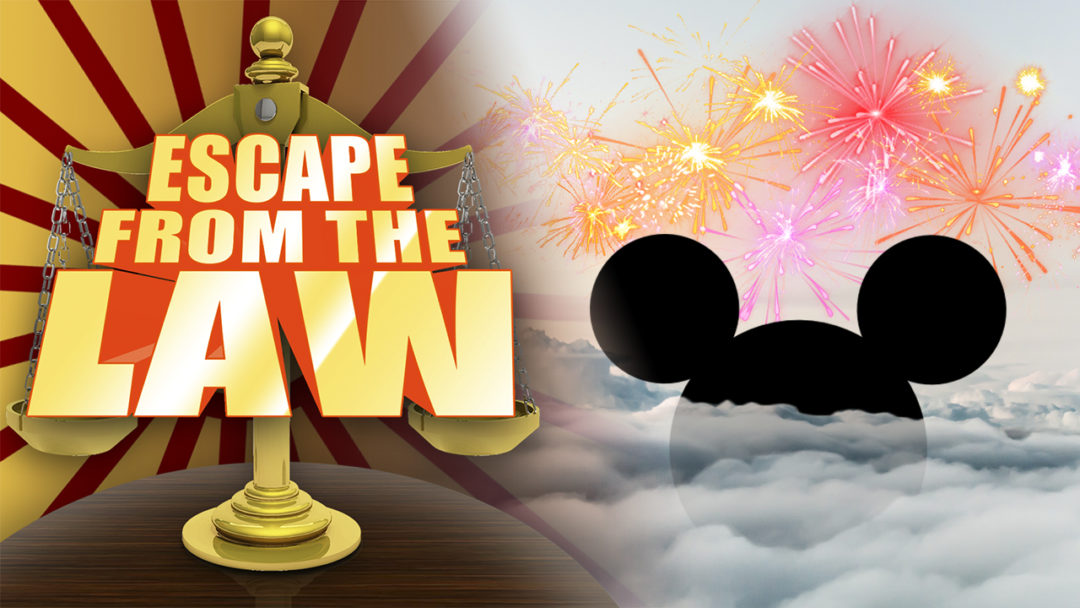In the last column, I considered some of the concerns fans have raised regarding Disney’s recent expansion. I explained that while Disney’s growth does not raise traditional antitrust concerns, the company’s control of culturally significant IP can be viewed as a “cultural monopoly.” Chiefly, it was stated, “The problem isn’t that Disney is anticompetitive in a traditional sense — it’s that the Disney properties are so significant from a cultural perspective that they shouldn’t be controlled by any one person or company.” I then identified two concerns that fans have raised regarding Disney’s cultural dominance: a concern that Disney will limit access to culturally significant creative works, and a concern that Disney will tarnish its creative properties in future projects.
This week, I consider what legal actions — if any — can be taken to address those concerns.
What can the law do to preserve access to culturally significant works?
When it comes to access, the primary concern is that Disney will use the “Disney vault” to limit access to cultural works, or that Disney will modify significant cultural works to promote future products or hide a controversial history. The law can easily address these concerns.
Do Nothing
While it might take some time, any problems regarding access to culturally significant works will solve themselves. As it stands, the only legal barrier that would prevent individuals from accessing creative works is copyright law. But copyrights expire, and when they do, the public will have free and unhampered access to the original, unaltered works. The copyright over Mickey Mouse expires in 2024. The copyright over the original Star Wars expires in 2072. While this extended time frame might not satisfy today’s fans, it means that, in the long run, Disney’s culturally significant works will belong to the people.
Amend the Copyright Act
If the extended time frame seems too long, Congress can amend the Copyright Act to decrease the duration of a copyright from 95 years to something like 45 or 50 years. This would provide creators with plenty of time to enjoy their exclusive copyright privileges, but it would provide the public with a more reasonable time frame for accessing these works. To put things in perspective, the original Star Wars movie was released in 1977. If the copyright lasted 50 years, it wouldn’t expire until 2027 — and that’s just for the original. Characters that appear in later films would be protected even longer.
When it comes to amending the Copyright Act, there are, however, a few wrinkles to consider. A copyright is considered a property right, and under the Takings Clause of the Fifth Amendment, the government is not allowed to take private property. Since copyright expiration dates have never been shortened, it’s not clear whether that kind of revision would be constitutional (and it’s essentially a guarantee that Disney would challenge the implementing statute). It’s also unclear whether the expiration of a copyright would allow free access to remastered versions of original works. Under the Copyright Act, adding creative material to a copyrighted work creates a brand new copyright. If the remastering process is considered creative work, then the expiration of a copyright would only allow the public to access the original, low-quality version of the work. While there is no clear answer to this question, there has been one decision suggesting that simple remasters are not entitled to copyright protection. Of course, when it comes to Star Wars, this question is even more confusing, as Lucasfilm combined remastering with small editorial changes.
National Historic Preservation Act
All 50 states have adopted historical preservation laws that empower local jurisdictions to designate historically significant landmarks and to prevent individuals from destroying or harming the integrity of those sites. While these laws apply to physical structures, the government could pass similar laws regarding historically significant cultural works. In particular, the government could designate specific cultural works as historically significant and then restrict the kind of modifications that could be made to those works.
While this proposal is interesting to think about and might even be beneficial from a policy standpoint, it obviously violates the First Amendment, restricts creativity, and would be incredibly hard to administer. (Would this prohibit clip shows? What about time travel revisits to previous scenes, like in Avengers: Endgame or Back to the Future Part II?)
There are a handful of similar proposals that are not as objectionable. For example, the government could require the owners of culturally significant works to preserve the “master copies” of the works, or it could require the owners to submit a copy of the master copies to an agency dedicated to historical preservation. Alternatively, the government could require owners of culturally significant works to include a clear label or title on any updated or altered version of the works, so that consumers know that the work was modified from its original form. While even that proposal may run afoul of the First Amendment, it could arguably withstand judicial scrutiny.

What can the law do to preserve the integrity of future creative endeavors?
When it comes to the integrity of future works, the concern is that Disney lacks the creative integrity, motivation, or ability to develop its properties to their full potential. Unlike the access problem, there is nothing the law can do to address this problem. Any attempt to limit or control the creative process would constitute a direct violation of the First Amendment.
But the problem extends well beyond the First Amendment. From a conceptual standpoint, any possible solution would also be impossible to administer. The problem is that there is no clear standard regarding what it means for a particular creative work to “preserve the integrity” of the previous franchise entries. Cultural works mean different things to different people. While many fans think Batman v. Superman: Dawn of Justice is a cultural travesty that failed to grasp the essence of both Batman and Superman, there are some who think the film provides the best incarnation of those characters. I certainly don’t want the government to tell me what to think about comic books.
The most persuasive example of how attempts to “preserve the integrity” of Disney’s properties could go awry comes from Disney itself. Until recently, filmmakers in the the Marvel Cinematic Universe were required to accept input from a “creative committee,” whose goal was to improve the quality of MCU offerings. On paper, the committee looked fantastic, as it included Marvel comic all-stars Brian Michael Bendis and Joe Quesada. But as it turned out, the committee was a disaster that nearly derailed what turned out to be some of the MCU’s best films, including Guardians of the Galaxy and Black Panther.

While there are plenty of reasons to be skeptical when it comes to the breadth of Disney’s creative properties, lack of quality is not one of them. All of Disney’s successful properties — both new and old — are successful for a reason. Each one grew from highly creative minds, was built on innovation, and had a strong, resonant emotional core. It’s true that no company is perfect, and in the coming years, Disney might have a hard time learning how to manage its various properties. But nothing that happens in the future can change the quality of the already-completed projects, nor can it change the cultural impact those projects have had.
For example, suppose Disney’s next major film is a crossover featuring Home Alone’s Kevin McAllister, The Simpsons’ Groundskeeper Willie, LeFou from Beauty and the Beast, and Marvel’s Stilt-Man. There is no doubt the film would fail miserably (… probably). But that failure would not retroactively convert Home Alone into a boring movie, nor would it harm any of the other properties. In other words, when it comes to preserving the integrity of Disney’s various properties, the law is powerless to help. But it’s also powerless to hurt. And I’m okay with that.





